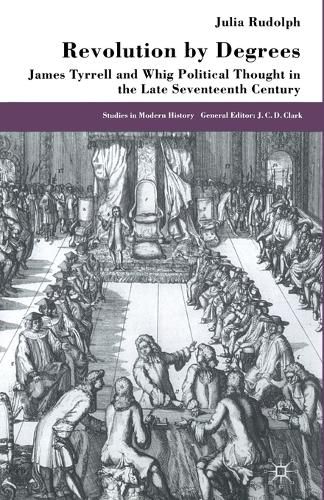Readings Newsletter
Become a Readings Member to make your shopping experience even easier.
Sign in or sign up for free!
You’re not far away from qualifying for FREE standard shipping within Australia
You’ve qualified for FREE standard shipping within Australia
The cart is loading…






This title is printed to order. This book may have been self-published. If so, we cannot guarantee the quality of the content. In the main most books will have gone through the editing process however some may not. We therefore suggest that you be aware of this before ordering this book. If in doubt check either the author or publisher’s details as we are unable to accept any returns unless they are faulty. Please contact us if you have any questions.
This book examines the Whig theory of resistance that emerged from the Revolution of 1688 in England, and presents an important challenge to the received opinion of Whig thought as confused and as inferior to the revolutionary principles set forth by John Locke. While a wealth of Whig literature is analyzed, Rudolph focuses upon the work of James Tyrrell, presenting the first full-length study of this seminal Whig theorist, and friend and colleague of John Locke. This book provides a compelling argument for the importance of Whig political thought for the history of liberalism.
$9.00 standard shipping within Australia
FREE standard shipping within Australia for orders over $100.00
Express & International shipping calculated at checkout
This title is printed to order. This book may have been self-published. If so, we cannot guarantee the quality of the content. In the main most books will have gone through the editing process however some may not. We therefore suggest that you be aware of this before ordering this book. If in doubt check either the author or publisher’s details as we are unable to accept any returns unless they are faulty. Please contact us if you have any questions.
This book examines the Whig theory of resistance that emerged from the Revolution of 1688 in England, and presents an important challenge to the received opinion of Whig thought as confused and as inferior to the revolutionary principles set forth by John Locke. While a wealth of Whig literature is analyzed, Rudolph focuses upon the work of James Tyrrell, presenting the first full-length study of this seminal Whig theorist, and friend and colleague of John Locke. This book provides a compelling argument for the importance of Whig political thought for the history of liberalism.